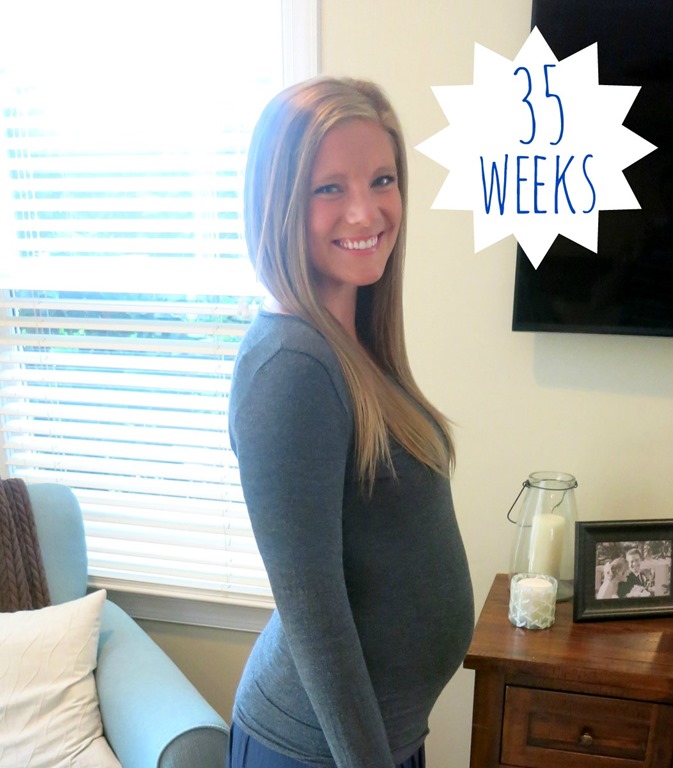
Table of Contents
What is Happening to Your Baby?
Congratulations, you are 35 weeks pregnant! Your baby is now the size of a coconut and weighs around five and a half pounds. At 35 weeks, your baby’s development is almost complete, and their main focus is on gaining weight and maturing their organs.Your baby’s brain is now fully developed, and they have already started practicing their breathing movements. When you are 35 weeks pregnant, your baby’s lungs are one of the last organs to mature. Hence, they continue to practice their breathing movements until birth.
What is Happening to Your Body?
At 35 weeks pregnant, you are probably feeling more and more uncomfortable as your baby continues to grow. Your uterus is now about six inches above your belly button, and your weight gain may have reached around 30 pounds.You may also experience Braxton Hicks contractions, which are usually mild, irregular, and do not increase in intensity. As your baby drops lower into your pelvis, your cervix may start to dilate, and you may experience more frequent and intense contractions.Other symptoms you may experience include heartburn, constipation, backache, and difficulty sleeping due to the size of your baby bump.
What You Can Do to Prepare for Delivery
As you approach the end of your pregnancy journey, here are some things you can do to prepare for delivery:- Attend childbirth classes to learn about the stages of labor, pain management techniques, and breathing exercises.- Pack your hospital bag with essentials such as toiletries, comfortable clothes, snacks, and important documents.- Discuss your birth plan and preferences with your healthcare provider and make sure that they are aware of any medical conditions or complications.- Install the car seat in your car and practice securing your baby safely.- Rest, relax, and take care of your mental and emotional wellbeing.
Conclusion
At 35 weeks pregnant, your baby is almost ready to greet the world, and your body is gearing up for delivery. Remember to take care of yourself physically, mentally, and emotionally, and to seek medical advice if you experience any concerning symptoms.
Frequently Asked Questions
Q: Is 35 weeks pregnant considered full term?
A: No, full term is considered 39 to 40 weeks pregnant. However, babies born at 35 weeks have a very high chance of survival and may only need a short stay in the neonatal intensive care unit.
Q: Can I still exercise at 35 weeks pregnant?
A: It is generally safe to continue exercising during pregnancy, but you should consult with your healthcare provider first. Gentle exercises such as walking, swimming, and prenatal yoga may help alleviate discomfort and prepare your body for labor.
Q: Can I still have sex at 35 weeks pregnant?
A: Yes, if you have a low-risk pregnancy and your healthcare provider gives you the green light. However, as your due date approaches, you may experience discomfort or a decreased sex drive.
Q: When should I call my healthcare provider?
A: You should call your healthcare provider if you experience any signs of preterm labor such as contractions, lower back pain, pelvic pressure, or vaginal bleeding. You should also seek medical advice if you have a fever, severe abdominal pain, or decreased fetal movement.
Q: Can I still travel at 35 weeks pregnant?
A: It is generally recommended to avoid traveling long distances after 36 weeks pregnant, as you may go into labor at any time. However, if you need to travel, you should consult with your healthcare provider first and take frequent breaks to stretch and walk around.
